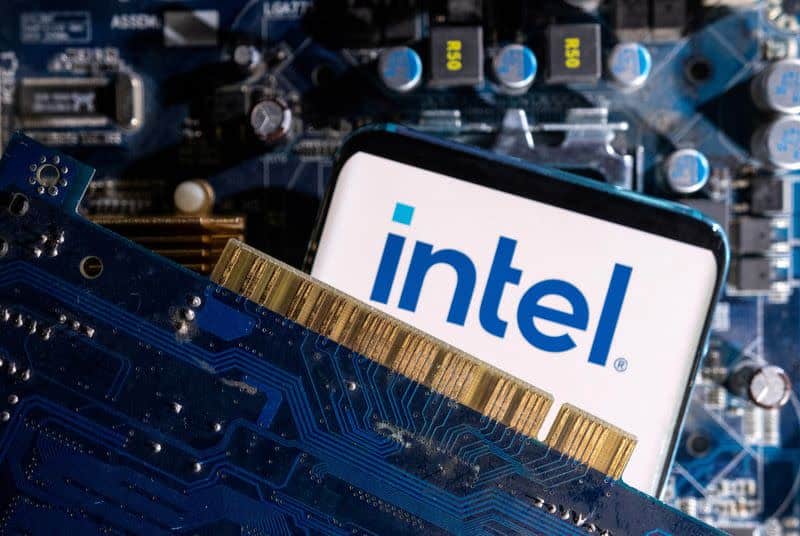Intel Faces Potential Split Amid Rival Interest

Intel, a cornerstone of the American semiconductor industry, is reportedly facing potential deals that could split the company in two. According to a recent report by the Wall Street Journal, both Taiwan Semiconductor Manufacturing Co (TSMC) and Broadcom are exploring options to acquire parts of Intel’s business. This development comes at a time when Intel is under pressure to enhance its competitiveness in the rapidly evolving chip market. The discussions are still in their early stages, but they signal significant interest from major players in the semiconductor industry.
Broadcom’s Interest in Intel’s Chip Design
Broadcom is closely examining Intel’s chip design and marketing business. The company has engaged in discussions about a potential bid, but it is likely to proceed only if it can find a partner for Intel’s manufacturing operations. This cautious approach reflects Broadcom’s strategic focus on ensuring that any acquisition would be beneficial and sustainable. The chip design sector is crucial for Broadcom, as it seeks to expand its portfolio and enhance its market position.
Intel’s chip design capabilities are among the most advanced in the industry. However, the company has faced challenges in recent years, including losing contracts and falling behind competitors like AMD and Nvidia. Broadcom’s interest in Intel’s design business could provide a lifeline for the struggling chipmaker. If successful, this acquisition could allow Broadcom to leverage Intel’s technology and expertise to strengthen its own offerings.
Despite the potential benefits, Broadcom’s plans remain tentative. The company is not currently working with TSMC, and all discussions are informal at this stage. The outcome of these talks will depend on various factors, including market conditions and regulatory considerations. As the semiconductor landscape continues to evolve, Broadcom’s interest in Intel highlights the competitive pressures facing the industry.
TSMC’s Ambitions for Intel’s Manufacturing Facilities
TSMC, the world’s largest contract chipmaker, is also exploring the possibility of acquiring some or all of Intel’s manufacturing plants. The company is considering this move as part of a broader strategy to expand its operations and increase its market share. TSMC’s interest in Intel’s facilities could lead to a significant shift in the semiconductor landscape, particularly if it forms an investor consortium to facilitate the acquisition.
Intel’s manufacturing capabilities are critical to its operations. The company has invested heavily in its factories to bolster production and meet growing demand for semiconductors. However, these investments have strained Intel’s cash flow, leading to significant challenges. TSMC’s potential acquisition of Intel’s manufacturing plants could provide the resources and expertise needed to revitalize these operations.
The discussions between TSMC and Intel are still in the preliminary stages. TSMC is not collaborating with Broadcom, and the talks remain largely informal. However, the prospect of TSMC taking control of Intel’s factories raises important questions about the future of American chip manufacturing. The U.S. government has expressed concerns about foreign ownership of critical infrastructure, which could complicate any potential deal.
Government Concerns and National Security Implications
The discussions surrounding Intel’s potential split have drawn the attention of the U.S. government. Intel’s interim executive chairman, Frank Yeary, has been in talks with potential suitors and government officials. The Trump administration has expressed concerns about the implications of foreign ownership of Intel’s factories, which are seen as vital to national security.
A White House official indicated that while the administration supports foreign investment in U.S. companies, it is “unlikely” to endorse a foreign entity operating Intel’s factories. This stance reflects broader concerns about the security of critical technology and infrastructure. The administration’s position could significantly impact the negotiations between Intel, TSMC, and Broadcom.
Intel has been a major beneficiary of the U.S. government’s push to onshore semiconductor manufacturing. The Commerce Department recently finalized a substantial subsidy for Intel, underscoring the company’s importance to the national economy. As discussions continue, the balance between fostering foreign investment and protecting national interests will be a key consideration for all parties involved.
Intel’s Challenges and Future Prospects
Intel has faced numerous challenges in recent years, including a significant decline in its stock value and the loss of key contracts. The company’s former CEO, Pat Gelsinger, set ambitious goals for Intel’s manufacturing and AI capabilities, but the company has struggled to meet these expectations. As a result, Intel has had to make difficult decisions, including workforce reductions.
The potential interest from Broadcom and TSMC presents both opportunities and challenges for Intel. While a split could provide the company with much-needed resources and expertise, it also raises questions about its long-term viability as a standalone entity. The semiconductor industry is highly competitive, and Intel must adapt to survive.
As discussions progress, Intel’s leadership will need to navigate complex negotiations while addressing the concerns of shareholders and government officials. The outcome of these talks could reshape the future of Intel and the broader semiconductor landscape. The coming months will be critical as Intel seeks to redefine its position in a rapidly changing market.
Observer Voice is the one stop site for National, International news, Sports, Editor’s Choice, Art/culture contents, Quotes and much more. We also cover historical contents. Historical contents includes World History, Indian History, and what happened today. The website also covers Entertainment across the India and World.

